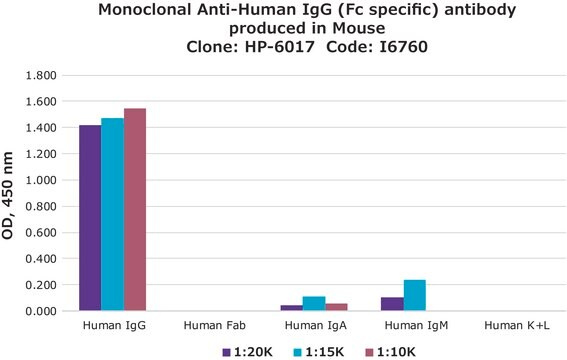AP127
Goat Anti-Mouse IgG Antibody, Fc
2.4 mg/mL, Chemicon®
About This Item
Produits recommandés
Source biologique
goat
Niveau de qualité
Conjugué
unconjugated
Forme d'anticorps
affinity purified immunoglobulin
Clone
polyclonal
Espèces réactives
mouse
Fabricant/nom de marque
Chemicon®
Concentration
2.4 mg/mL
Technique(s)
ELISA: suitable
immunoprecipitation (IP): suitable
western blot: suitable
Conditions d'expédition
wet ice
Modification post-traductionnelle de la cible
unmodified
Description générale
Application
Forme physique
Stockage et stabilité
Informations légales
Code de la classe de stockage
12 - Non Combustible Liquids
Classe de danger pour l'eau (WGK)
WGK 2
Point d'éclair (°F)
Not applicable
Point d'éclair (°C)
Not applicable
Certificats d'analyse (COA)
Recherchez un Certificats d'analyse (COA) en saisissant le numéro de lot du produit. Les numéros de lot figurent sur l'étiquette du produit après les mots "Lot" ou "Batch".
Déjà en possession de ce produit ?
Retrouvez la documentation relative aux produits que vous avez récemment achetés dans la Bibliothèque de documents.
Notre équipe de scientifiques dispose d'une expérience dans tous les secteurs de la recherche, notamment en sciences de la vie, science des matériaux, synthèse chimique, chromatographie, analyse et dans de nombreux autres domaines..
Contacter notre Service technique



